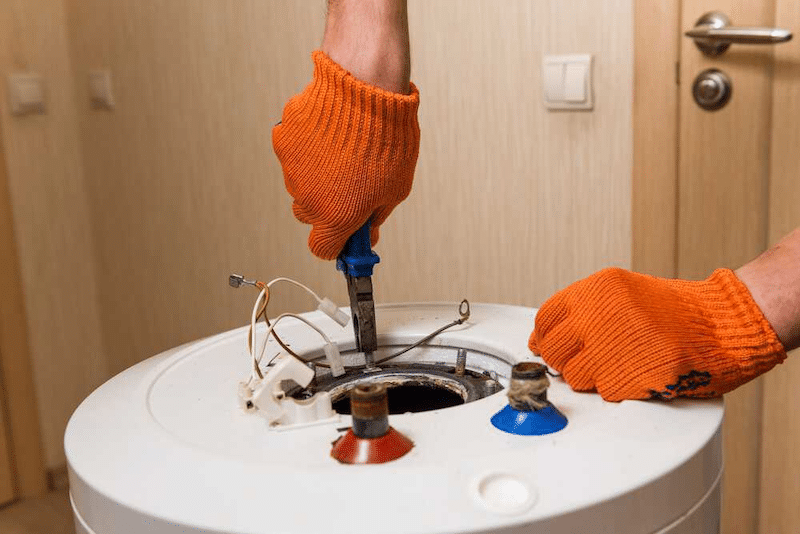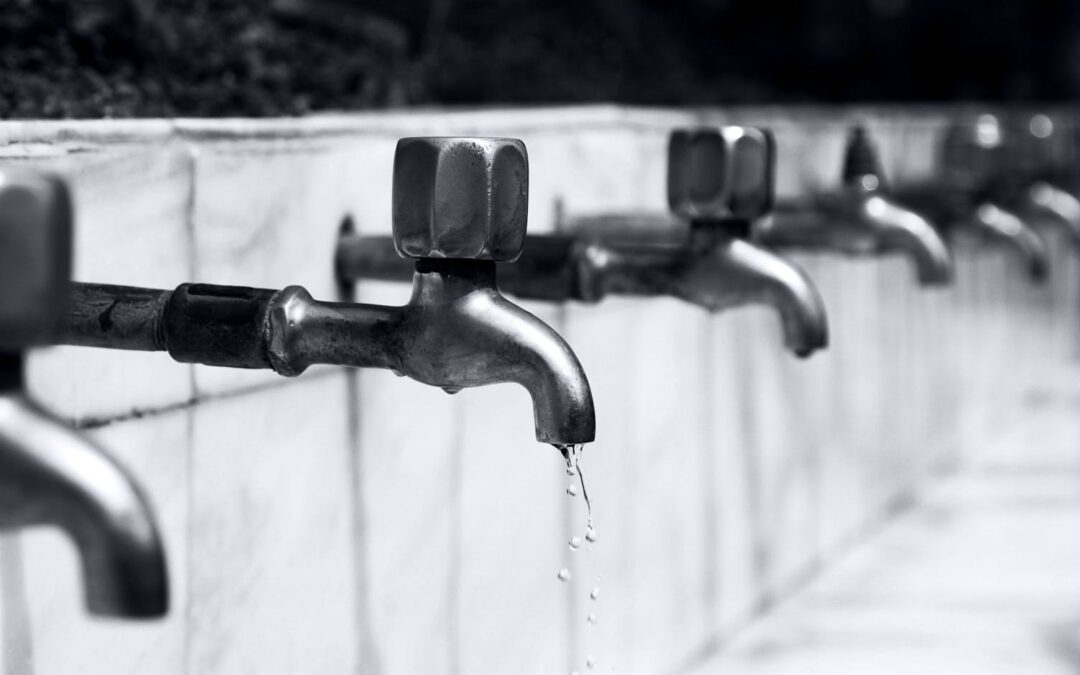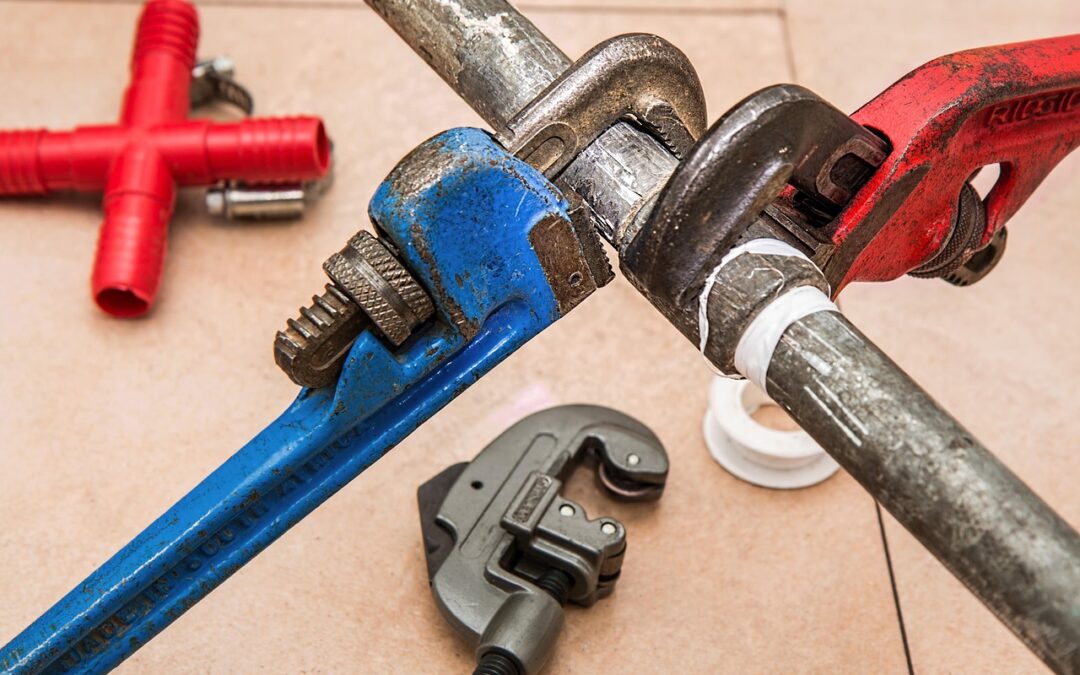If you’re like most homeowners, you probably don’t think about your hot water heater until it stops working. And when it does stop working, you probably want to know how long it will last and what you can do to ensure it lasts as long as possible. In this blog post, we’ll discuss how long hot water heaters last and what you can do to extend their lifespan. Stay tuned!
How Long Do Hot Water Heaters Last?
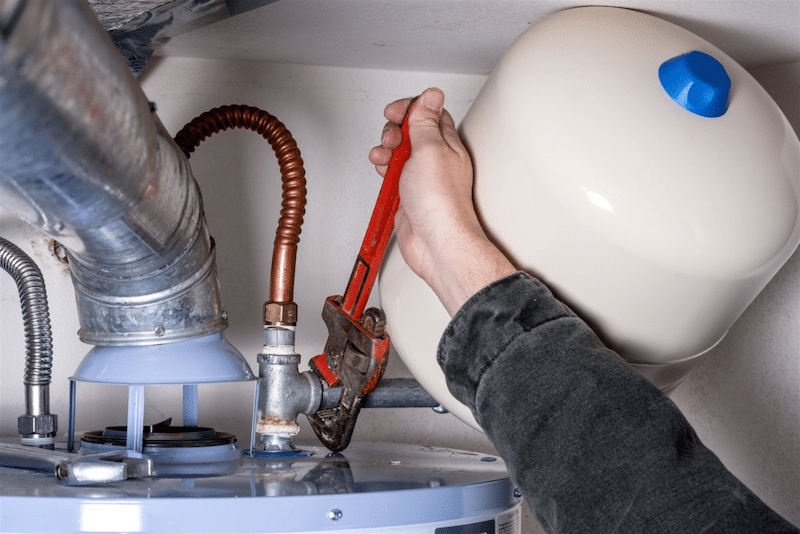
With proper maintenance and service, the average lifespan of a new water heater is 12 years. However, various factors play a role in how long your hot water heater will last. For example:
Schedule Service Online
Get a free estimate so you know what you're signing up for
"*" indicates required fields
For Emergency Services Call: 410-255-9300
- How often is it used
- Location
- Quality Of Water
The lifespan of your water heater is also determined by the model you have. Tank water heaters last, on average, 8 to 12 years, while a tankless water heater may survive far longer, up to 20 years.
The lifespan of electric or gas water heaters will also differ, but on average, a gas heater will last 8-12 years, while an electric one could possibly last 10-15 years.
Signs Your Water Heater Needs To Be Replaced
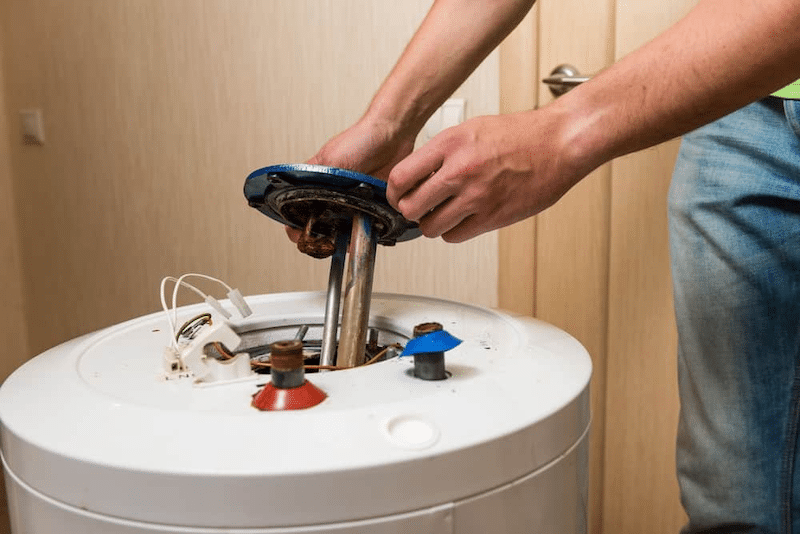
A new hot water heater might be needed if any of the following issues start to arise:
Lack Of Maintenance
Your water heater needs to be properly maintained in order for it to last as long as possible. This means regularly flushing the tank to remove sediment, checking the anode rod, and making sure the temperature is set correctly.
If you don’t properly maintain your water heater, then it will start to show signs of wear and tear. For example, the pressure relief valve might start to rust, or the heating elements might fail. In either case, you’ll need to replace your water heater.
There Is Sediment Build-Up In Your Water Heater Tank
One of the main reasons why water heaters fail is because of sediment buildup in the tank. Over time, minerals in the water will settle at the bottom of the tank and form a layer of sediment.
If this sediment isn’t removed, then it will start to insulate the heating elements and prevent them from doing their job. As a result, your water heater will have to work harder and use more energy to heat the water.
Eventually, the sediment will become so thick that it will completely block the heating elements and prevent them from working altogether. At this point, you’ll need to replace your water heater.
You’re Getting A Small Supply Of Water
If you’re not getting enough hot water, then it might be time for a new one. This is usually because of corrosion on the heating elements.
It’s important to note that if your water heater is gas-powered, then it’s possible the pilot light has gone out. In this case, you can relight it yourself. However, if you have an electric water heater, then you’ll need to call a professional.
Water Heater Leaking
If your water heater is leaking, then it’s definitely time for a replacement. Water heaters usually start to leak when the tank rusts through.
It’s important to note that even a small leak can cause major damage to your home. So, if you see any water coming from your water heater, be sure to shut off the power and call a professional right away.
Other Signs That Your Water Heater May Need To Be Replaced
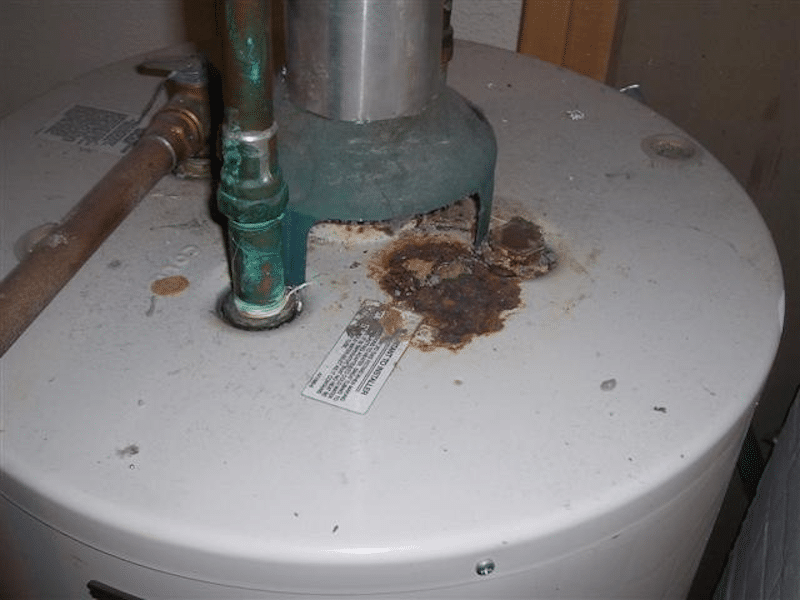
In addition to these primary warning signs, there are more subtle signals that you should be aware of. If you notice any of the following issues, call a professional plumber:
Metallic taste: If you notice a metallic taste in your water, it’s probably because of rust in your water heater; if you’re not sure whether your water heater needs to be replaced or not, call a plumber to inspect it.
Limescale buildup on plumbing surfaces: If you see a chalky, powdery substance on the pipes leading to and from your water heater or on the surfaces of fixtures in your home, that’s limescale. Limescale is a mixture of calcium carbonate, magnesium carbonate, and other minerals that are naturally found in water. Over time, these minerals can build up and cause problems with your plumbing.
Water pooling around the base of the heater: A small amount of moisture around the base of your water heater is normal. But if you see a large amount of water or notice water seeping from the bottom of the tank, that’s a sign of a leak, and your water heater needs to be replaced.
Tinted water: If you notice your water is tinted red or yellow, that’s a sign of rust in your water heater. Rust can cause problems with your water heater and your plumbing. If you see rust in your water, call a plumber to inspect your water heater. If you have an older water heater, it’s probably time to replace it.
Cold Water: One of the most common signs that your water heater is failing is when you turn on the hot water, and it comes out cold. This means that the heating element in your water heater is no longer working. If this happens, you’ll need to replace your water heater.
5 Ways To Ensure Your Water Heater Lasts Longer
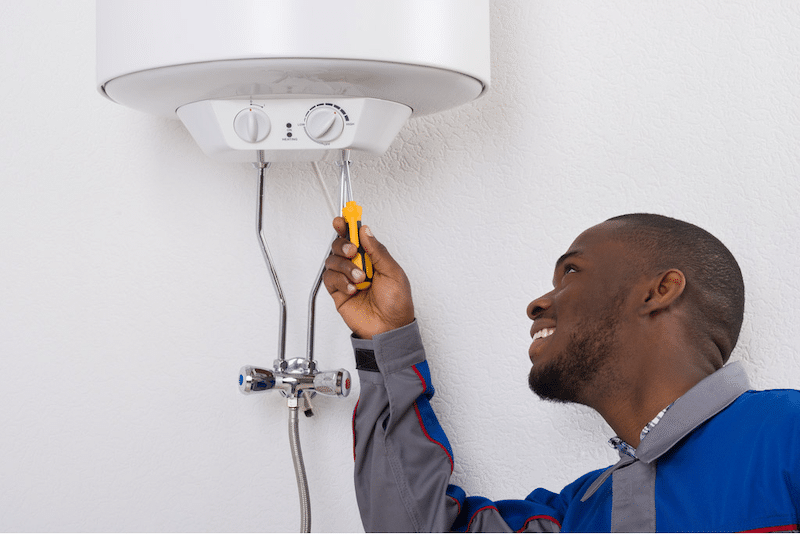
There are various ways to ensure your water heater will last as long as possible.
Think Ahead
If your hot water heater is more than ten years old, it’s probably time to start thinking about replacing it. If it’s located in an area of your home that’s prone to flooding, you may want to replace it sooner. And if you have hard water, you may need to replace your hot water heater more often. To get the most out of your hot water heater, make sure you follow the manufacturer’s recommendations for maintenance and care.
Ensure You Get Newer Models
As time goes on and newer versions are released, your 10-year-old water heater is more likely to be less efficient than any current model. It’s probable that your water heater isn’t complying with standards or is at least unnecessarily driving up your utility expenses due to inefficiency.
When you upgrade to a newer water heater model, you’ll see how the technological advancements made since your previous one will immediately decrease your energy bill.
Check Out Warranties
It’s never a bad idea to contact the manufacturer if your water heater is still under warranty. The problem may be fixable if it’s less than two years old, saving you a lot of money. Call the manufacturer and inquire whether you can purchase any extra time before needing a replacement or before you decide to buy a new water heater.
Install A Water Heater Shut-off Valve
Even if your water heater is in great shape, you should still install a shut-off valve. This will ensure that if there is ever a problem with your water heater, you can quickly turn off the water to prevent any further damage.
Hire A Professional To Inspect It Regularly
If you’re not sure whether your water heater needs to be replaced or not, call a plumber to inspect it. They can clean it and make any necessary repairs. If they think it’s time for a replacement, they can help you choose the right water heater for your home and budget.
What Water Heater Should You Choose?
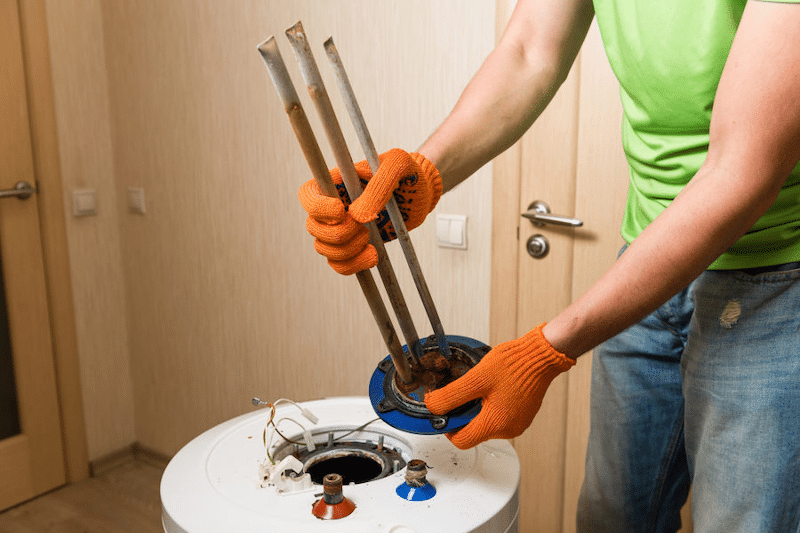
It is important to remember that cheaper does not always mean better when you are in the market for a water heater. With that in mind, do your research before zeroing in on a brand. It can be difficult choosing between different brands and types of hot water heaters but understanding what type best fits your needs is vital nonetheless.
Here are some things to consider:
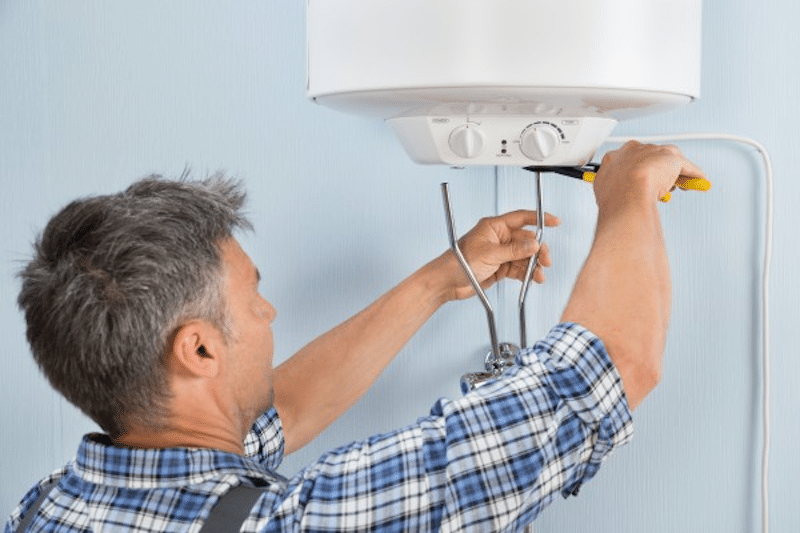
1. Price
Price is a significant deciding factor for most people. The average price of a 40 or 50-gallon tank water heater ranges from $400 to $1,600.
2. Ease Of Use And Maintenance
Hot water heaters are used on a daily basis, so it is important that they are easy to use and do not require a lot of maintenance.
3. Energy Efficiency
An energy-efficient water heater will use less energy, which will save you money on your utility bills.
4. Warranty
A warranty is important because it protects you in case your water heater breaks down and needs to be replaced. Most warranties range from five to 10 years.
5. Installation Requirements
Installation requirements vary depending on the type of water heater you choose. Some water heaters must be installed by a professional, while others can be installed by the homeowner.
6. Type
There are various types of water heaters available in the market today. However, the two most popular categories include tank and tankless water heaters.
Some of the most reputable and popular brands you’ll find when you search for the best water heaters include:
Those are household names that have been selling high-end appliances for decades. That brand recognition might be enough to show where they rank in terms of reputation and quality.
A.O. Smith, Bradford White, and Rheem specialize in water heaters and other plumbing fixtures, so these brands would be your best bet if you’re looking for a water heater that will last for years.
Conclusion
If you have an older water heater, it’s important to inspect it regularly for rust and other problems. If you notice any problems with your existing water heater, call a plumber to inspect it and make any necessary repairs. If you have a newer water heater, make sure to follow the manufacturer’s recommendations for maintenance and care. Thanks for reading! We hope this article was helpful.
Need A Plumber Call Us
If you are experiencing any problems with your water heater, or if you just have some questions, our team of experts at Maryland Sewer And Plumbing is here to help. We have been in business for over years, and our staff is ready to provide you with the knowledge and expertise you need to make the best decision for your home. Give us a call today at (410) 255-9300 or contact us to learn more about our services.

